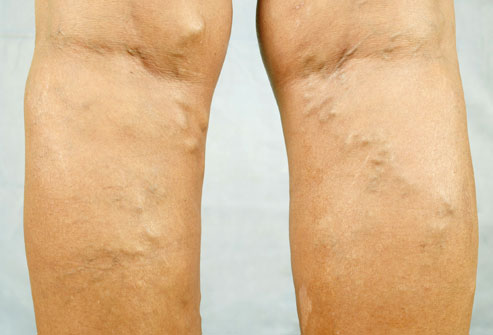Are Varicose Veins Genetic?

Varicose veins are a nightmare to some people. They show up as thick, twisted blue veins most often in the thighs and legs. No one knows exactly why some people are more prone to these veins, but some believe it could be a big part due to genetics. Over half the population reports getting them at times so it must be more than simple genetics, but your genealogy might have something to do with the condition.
Many conditions dealing with blood, veins and arteries often link back to genetics. Veins are often structured like those in their genetic line meaning if there is an issue it could be passed down. Many times, varicose veins are not just about the twisted, raised vein, but about a deeper issue. Many of these deeper issues stem from the family line. This could be an issue with other veins or arteries.
Veins have small valves with flaps which open and close allowing your blood to pump into the next section of the body. If a valve does not work correctly, blood is not pushed through correctly. If the parent or parents have this issue, the child could inherit the same problem resulting in varicose veins.
There are other factors that can trigger varicose veins. Many people that sit for numerous hours during the day get the condition. Pregnancy increases blood flow and pressure to the legs sometimes resulting in these types of veins. Straining is often a problem for leg veins. Age is also an issue for many as the veins get weaker over time. Sometimes varicose veins show up on their own without any family history just because of your vein structure. Other times people are more prone to the condition due to their family background so these things only boost the vein issue.
Deep vein thrombosis is a good example of genes affecting veins. This is when blood clots form deep in the body. These could lead to big dangers for people as they block blood flow. The good news is that an active lifestyle whether it’s in your genes or not can help control this type of vein issue. You can always be on the lookout for signs and symptoms no matter if any type of vein condition is in your family line.
Many patients seek treatment to rid of their varicose veins. It’s a treatment of debate as some say it is simply cosmetic while others say it is needed. Some patients have gone as far as to try to get reimbursed for varicose vein treatment. Some patients wouldn’t even know they had varicose veins if they couldn’t be seen with their own eyes as they have no symptoms.
Other patients just hate the look and want them gone. Either way, varicose veins should not cause patients medical concern unless they have further symptoms. The veins will not disappear. They can cause itchiness or discomfort in the legs for some patients. If this is you, it’s best to contact a specialist for further treatment.
